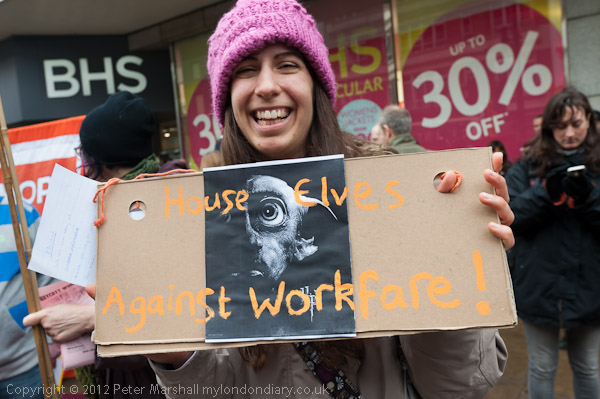
Workfare is a controversial policy first begun in the UK in the 1990s by the Conservative government of John Major, although it developed from earlier schemes which put active pressure on claimants to seek work. Under various different programmes and names workfare continued under New Labour, but it was under the Tory-led coalition in 2011-2 that it came into widespread use.
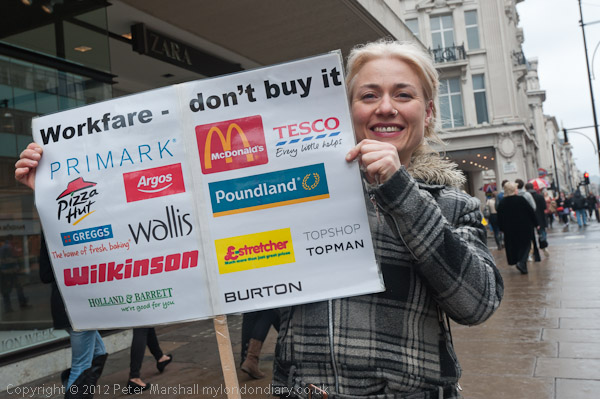
Workfare is used to describe schemes where in order to receive unemployment benefit people have to undertake unpaid work, either in the commercial or public sector or for charities. In 2011 the coalition government announced that those who had failed to find jobs after being unemployed for some time would have to work unpaid for 30 hours a week for six months, setting up a number of schemes to this end.
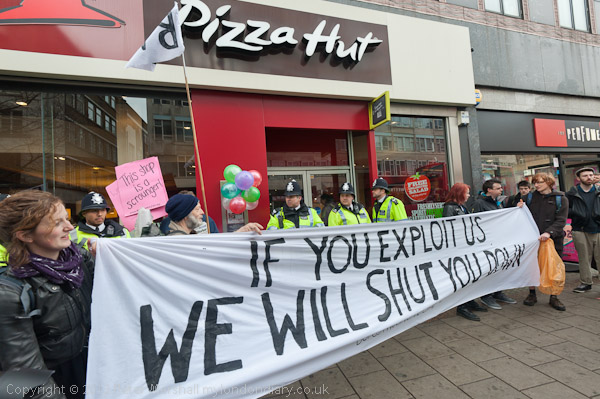
THe proponents of ‘workfare’ say that those forced to take part in these schemes benefit from the experience or working and that it will prepare them for paid work and that the experience will make it easier for them to find employment. They say it isn’t unfair to ask people to do something in exchange for the benefits they receive.
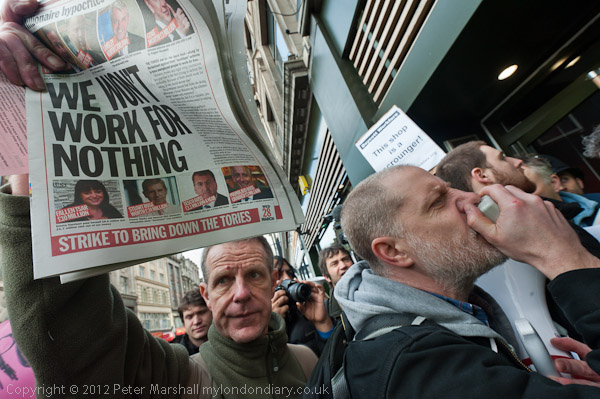
Academic studies by the DWP of international workfare schemes had shown that these claims were unsound. There was little evidence that workfare increased the chances of finding work, and that it might even reduce this, firstly because if people were on workfare they had less time to look for jobs, but also because workfare placements seldom provided the kind of skills and experience that potential employers were looking for.
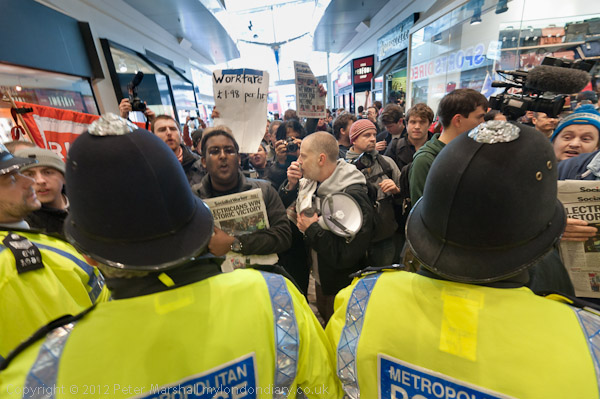
Trade unions and others point out that every person on workfare actually cuts out a job that would otherwise be carried out by a paid employee – so there are fewer jobs for those seeking employment. Workfare is largely a subsidy to employers, supplying them with free labour – essentially a form of slave labour. Workfare schemes – whether in the private sector or public or charity work – fail to provide any of the employment status and protection that employees or workers receive.
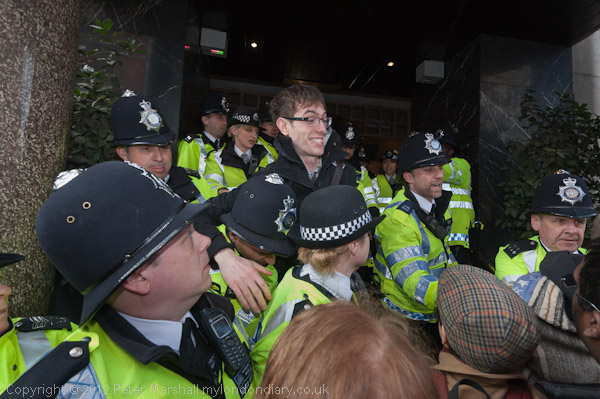
Strong negative reactions to these schemes – such as those demonstrated by the Boycott Welfare protest in Oxford St, London I photographed on Saturday 3rd March 2012 – led to many companies withdrawing from the scheme, and others ending talks with the government about taking part in it. According to Wikipedia, the campaign group ‘Boycott Welfare’ ‘very successful in making companies and charities pull out of “workfare”.’ By August 2016, “more than 50 organisations have ended their involvement in workfare, because of negative publicity.”
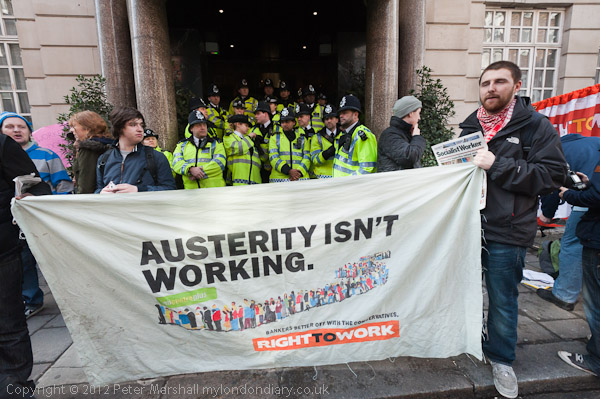
But workfare still continues, and as Boycott Welfare write on their web site, “Workfare forms a key tool of ‘compliance’ with the regime of Universal Credit, and is enforced via sanctions.” As well as Universal Credit, workfare also continues under the government’s Sector-Based Work Academies, Work and Health Programme and Youth Obligation schemes.
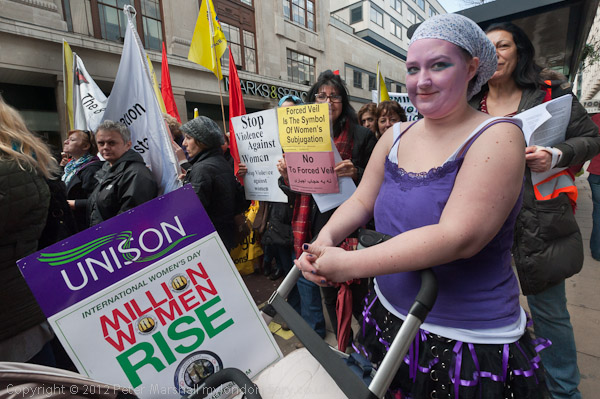
Also on the same day I photographed other events. Firstly the Million Women Rise March, a women-only march through the centre of London against domestic abuse, rape and commercial sexual exploitation and for the prevention of abuse and support and protection for women. I was shocked to learn from a member of one of the more active women campaigning groups that has been the among the leaders in previous celebrations around International Women’s Day and had taken part in previous years that they had been told they were not welcome on the march, though I think they have taken part in more recent years.

I left that march as it went down Oxford St on its way to a rally at Trafalgar Square and took the tube to St Paul’s where Greeks were protesting in solidarity with students and workers in Greece against the austerity measures being imposed as a part of the Eurozone rescue package for the country. They had planned to protest at the Occupy London camp, but that had been cleared a few days previously, but some of the occupiers had returned to hold a general meeting on the St Paul’s Cathedral steps.
More on these events from Saturday 3rd March on My London Diary:
Greeks Protest At St Paul’s
Million Women Rise March
Boycott Workfare – Oxford St
All photographs on this and my other sites, unless otherwise stated, are taken by and copyright of Peter Marshall, and are available for reproduction or can be bought as prints.